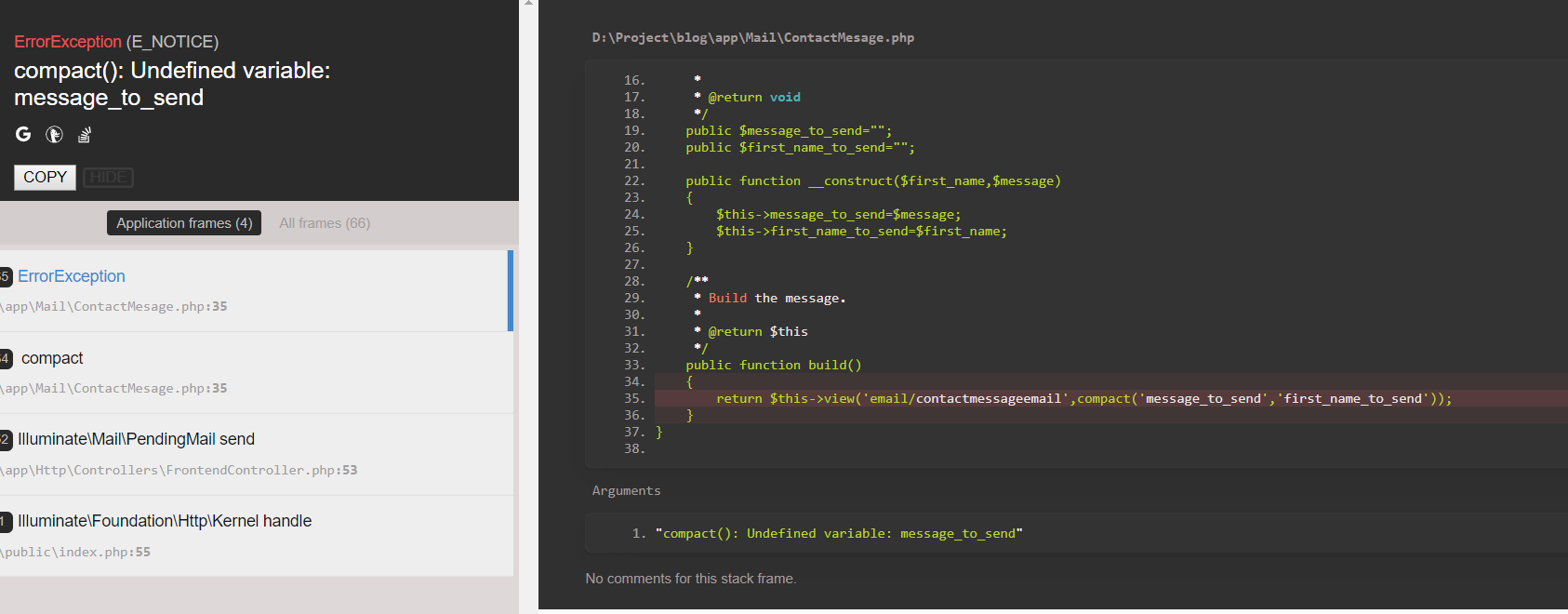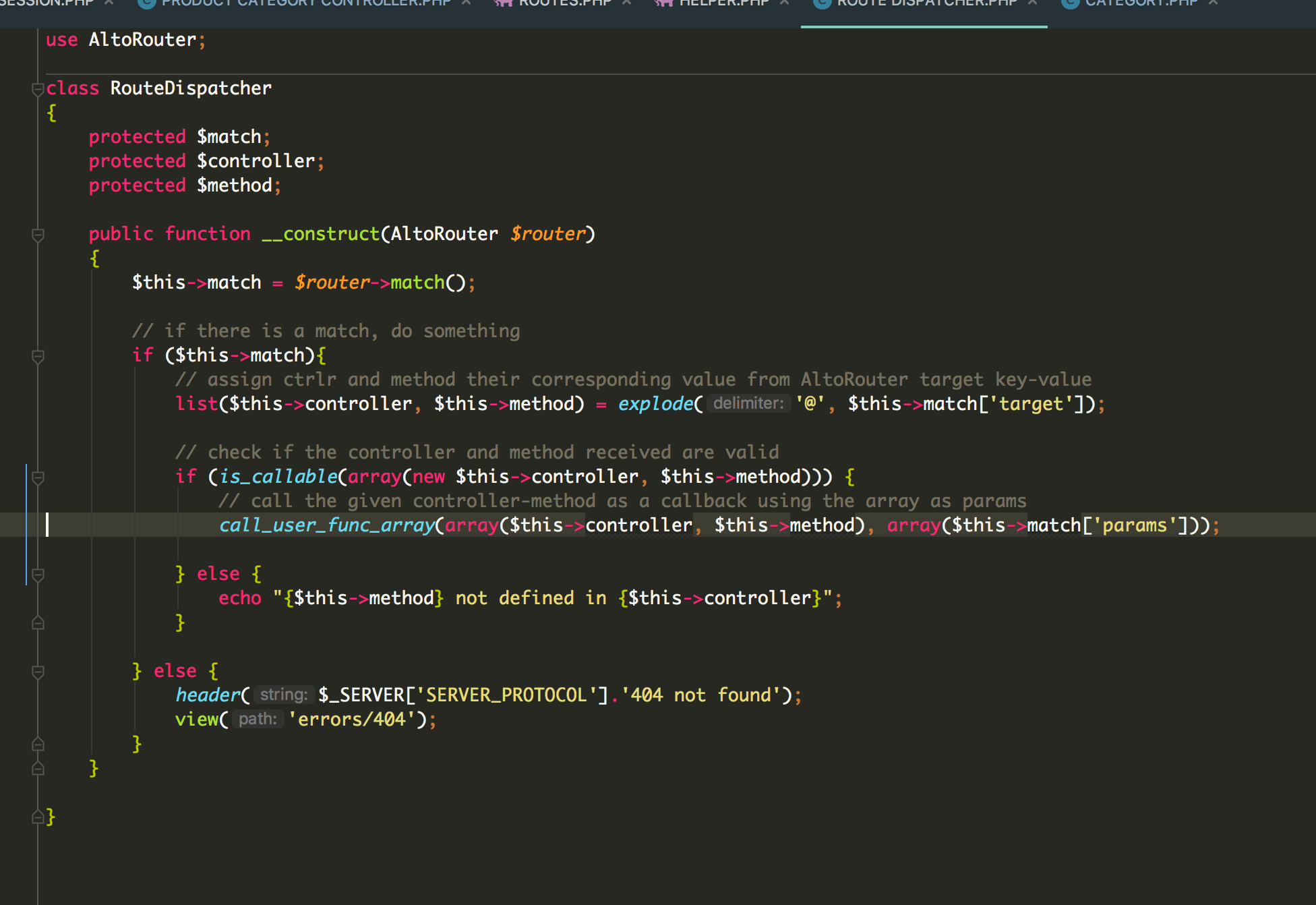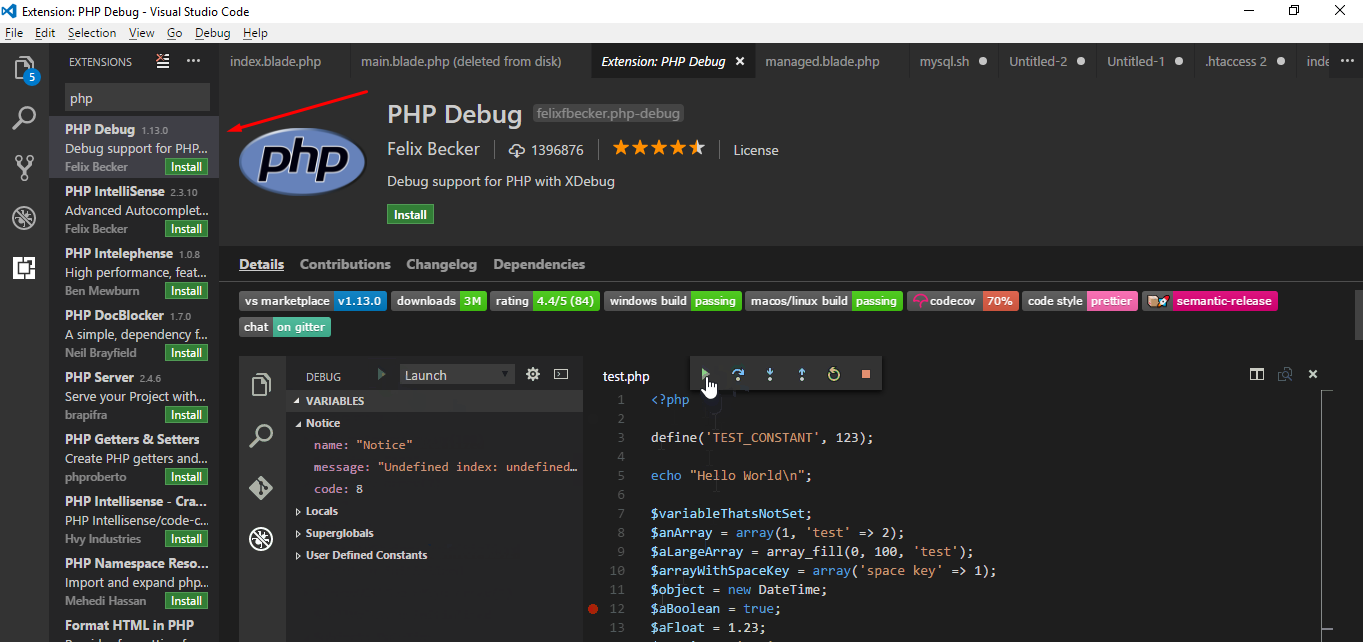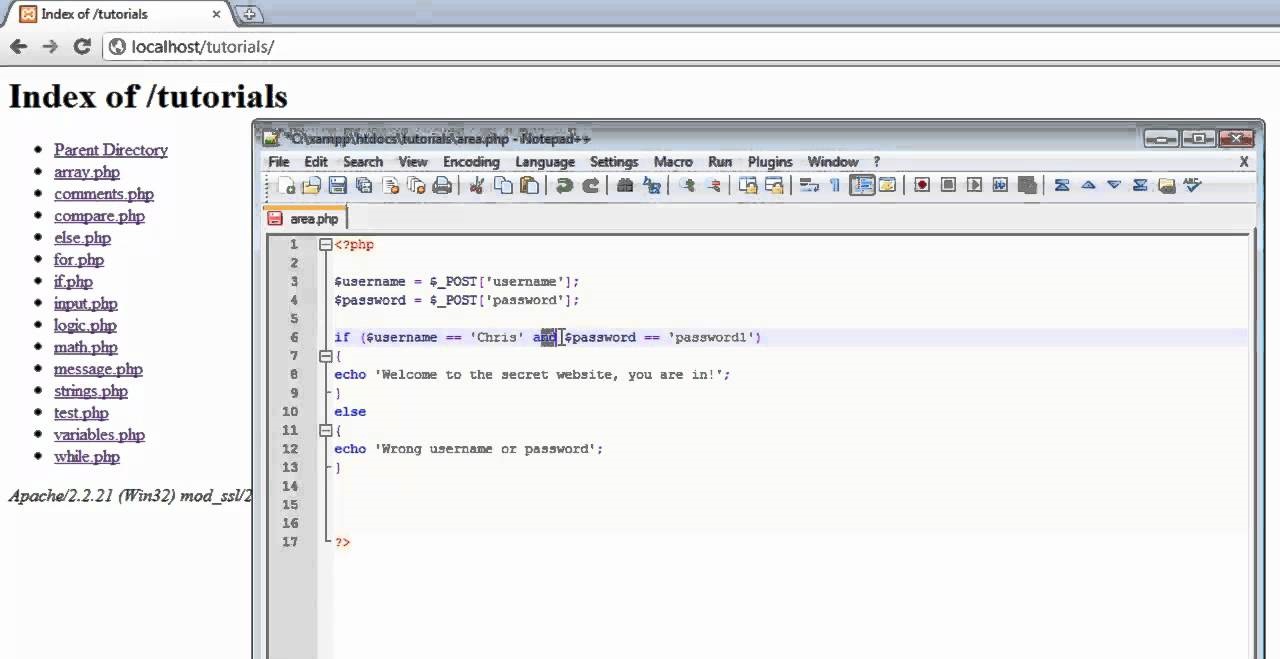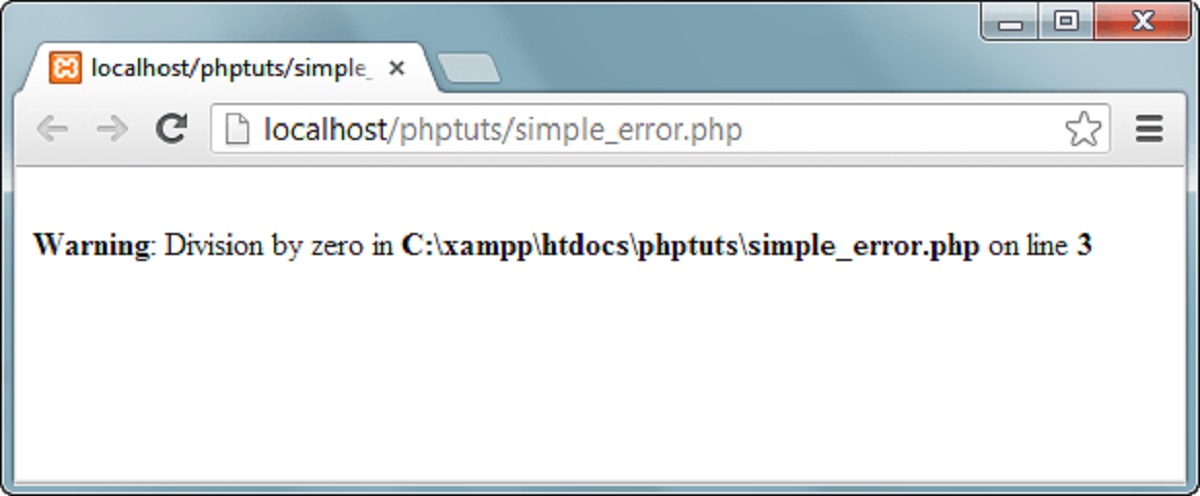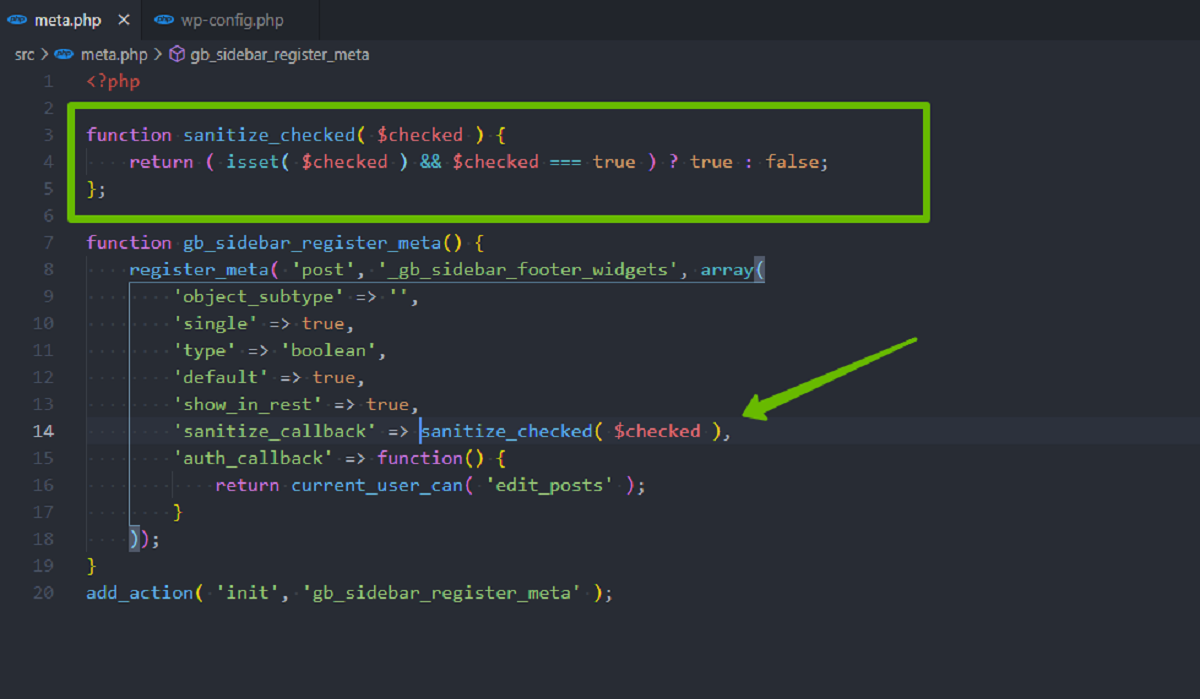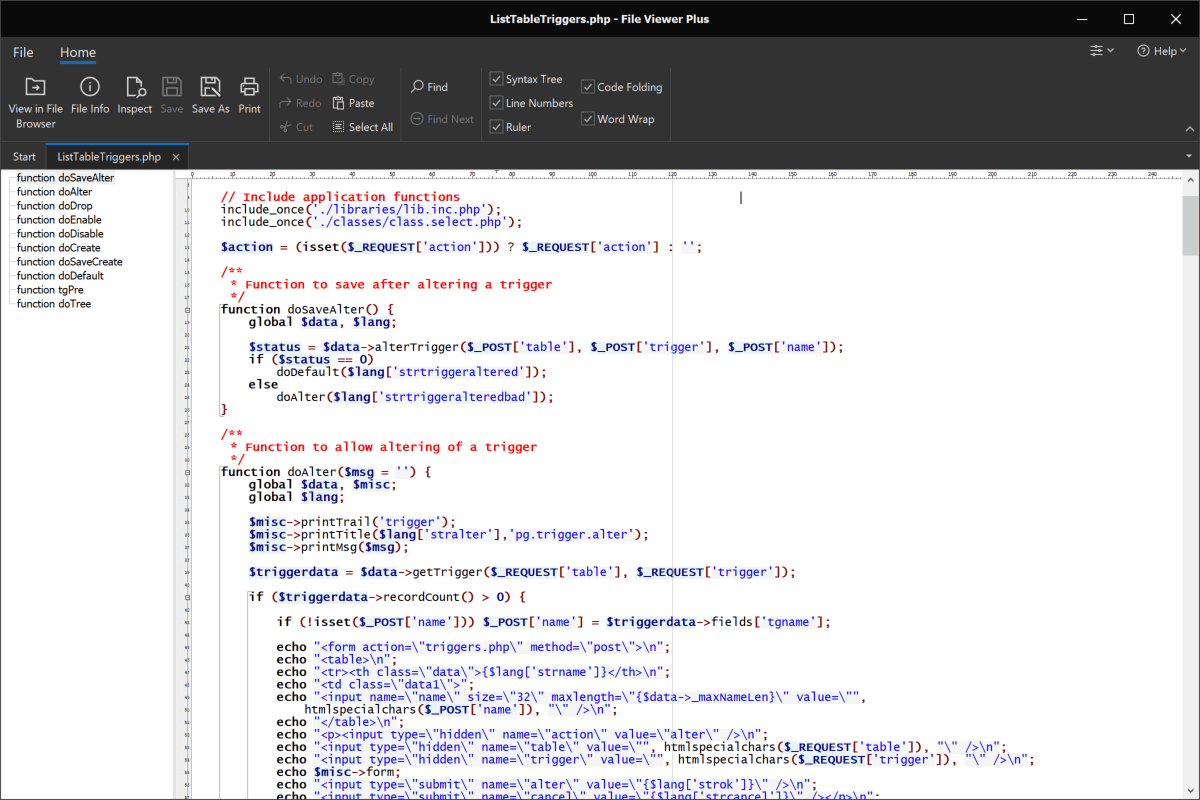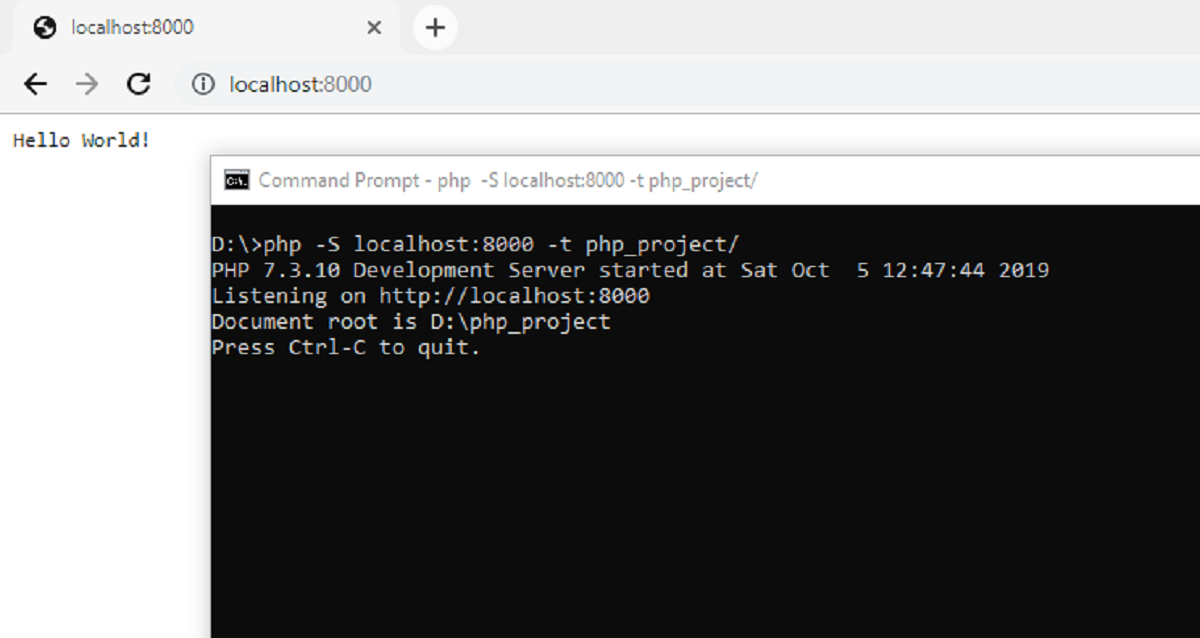Introduction
Welcome to this guide on how to remove the “undefined variable” error in PHP. As a PHP developer, you may have encountered this common error when running your code. It can be frustrating and time-consuming to debug, but fear not – we are here to help you understand the error and provide practical solutions to resolve it.
PHP is a versatile and widely used server-side scripting language that offers powerful features for web development. However, one of the challenges developers often face is dealing with undefined variable errors. These errors occur when you try to use a variable that has not been defined or initialized. They can cause your code to break and prevent your application from functioning as intended.
In this guide, we will explore the concept of variable scope in PHP, which is crucial to understanding why undefined variable errors occur. We will also cover various methods for debugging and resolving these errors, ranging from using built-in functions and operators to implementing best practices in your coding practices to prevent such errors from occurring in the first place.
Removing undefined variable errors in your PHP code will not only improve the overall functionality of your website or application but also ensure a smoother user experience. It will help you deliver reliable and error-free solutions to your clients or users.
Throughout this guide, we will provide clear examples and practical solutions to help you become proficient at handling undefined variable errors. So, let’s dive in and conquer this common issue together!
What is an Undefined Variable Error?
An undefined variable error in PHP occurs when you try to use a variable that has not been declared or initialized. It happens when you reference or perform operations on a variable that does not exist in the current scope. This error can be a common and frustrating issue for PHP developers, especially those new to the language.
In PHP, variables are used to store values that can be accessed and manipulated throughout the code. However, before using a variable, it must be declared and assigned a value. If you attempt to use a variable that has not been defined, PHP will raise an undefined variable error.
The most common scenario for encountering this error is when you forget to initialize a variable or misspell its name. For example, if you attempt to echo the value of a variable without defining it first, PHP will throw an undefined variable error.
It’s important to note that PHP has different levels of variable scope, which determines where a variable can be accessed within a program. Variables can be defined as global variables, accessible from any part of the script, or local variables, restricted to a specific function or block of code. Understanding variable scope is crucial for resolving undefined variable errors since accessing a variable outside of its scope will trigger this error.
Undefined variable errors can disrupt the execution of your code and result in unexpected behavior. They can be tricky to debug, especially in larger codebases or complex applications. However, with a clear understanding of variable scope and knowledge of effective debugging techniques, you can quickly identify and resolve these errors, ensuring the smooth execution of your PHP code.
Understanding Variable Scope in PHP
Variable scope in PHP refers to the accessibility and visibility of variables within different parts of your code. Understanding variable scope is crucial for writing organized and error-free PHP programs.
PHP has three main levels of variable scope: global scope, local scope, and function scope.
Global scope refers to variables that are declared outside of any functions or methods. These variables can be accessed and manipulated from anywhere within your PHP script. However, it’s important to use global variables sparingly as they can make your code more difficult to maintain and debug.
Local scope refers to variables that are declared inside a function or a block of code, such as a loop or conditional statement. These variables are only accessible within the specific function or block where they are defined. Once the function or block execution completes, the variables are destroyed and cannot be accessed in other parts of the code.
Function scope is similar to local scope but specifically applies to variables declared within a function. Function parameters and variables defined inside the function are only accessible within that function, and they are discarded once the function execution terminates.
It’s worth noting that variables declared within nested functions have access to variables defined in their parent functions. This is known as variable inheritance or variable chaining. However, variables declared in a nested function are not accessible in its parent or sibling functions.
Understanding variable scope in PHP is essential for preventing undefined variable errors. When you encounter an undefined variable error, it’s often because you are trying to access a variable from an incorrect scope, such as using a local variable outside of its function or referencing a global variable within a function without properly declaring it as global.
In the next sections, we’ll discuss various debugging techniques and best practices to help you handle undefined variable errors effectively in your PHP code. By following these practices and understanding the scope of your variables, you can minimize the likelihood of encountering these errors and improve the quality and reliability of your PHP applications.
Debugging an Undefined Variable Error
Debugging an undefined variable error in PHP involves identifying the source of the error and taking the necessary steps to resolve it. Here are some effective techniques and tools you can use to debug these errors and ensure smooth code execution.
1. Enable error reporting: By default, PHP doesn’t display undefined variable errors. To enable error reporting, add the following lines of code at the beginning of your PHP script:
php
ini_set(‘display_errors’, 1);
ini_set(‘display_startup_errors’, 1);
error_reporting(E_ALL);
With error reporting enabled, PHP will display any undefined variable errors on the screen, making it easier for you to identify and fix them.
2. Inspect the error message: When an undefined variable error occurs, PHP will provide an error message with the line number and file where the error occurred. Use this information to locate the specific line of code causing the error.
3. Check for misspelled variable names: Double-check the variable names in your code and ensure they are spelled correctly. Even a small typo can lead to an undefined variable error. Pay close attention to capitalization as PHP is case-sensitive.
4. Verify variable scope: Make sure that the variable you’re trying to access is within the correct scope. If you’re trying to access a local variable outside of a function, it will result in an undefined variable error. Similarly, if you’re referencing a global variable inside a function, you need to use the global keyword to make it accessible.
5. Use var_dump() or print_r() for debugging: If you’re unsure whether a variable is defined or what its value is, use the var_dump() or print_r() functions to display the variable’s contents. These functions are invaluable for checking the existence and value of variables during the debugging process.
6. Use conditional statements: Use conditional statements to check if a variable is defined before using it. The isset() function is especially useful for checking the existence of a variable. Here’s an example:
php
if (isset($variable)) {
// Use the variable here
} else {
// Handle the situation when the variable is not defined
}
By performing these checks, you can prevent undefined variable errors from occurring and gracefully handle situations where the variable is not defined.
Debugging undefined variable errors requires a systematic approach and attention to detail. By following these techniques and taking a closer look at your code, you’ll be able to identify and fix these errors more effectively, providing a stable and error-free experience for your users.
Using isset() Function to Check Variable Existence
In PHP, one of the most widely used functions for checking variable existence is isset(). It allows you to determine whether a variable has been defined and is not null. By using isset() to check the existence of a variable, you can effectively prevent undefined variable errors in your code.
The isset() function takes one or more parameters and returns true if all the specified variables are set and not null. If any of the variables are undefined or null, the function returns false. This allows you to conditionally execute code based on the existence of a variable.
Here’s an example that demonstrates how to use isset() to check if a variable is defined before using it:
php
if (isset($variable)) {
// The variable is defined, so you can safely use it here
} else {
// The variable is not defined, handle the situation accordingly
}
By using isset(), you prevent PHP from throwing an undefined variable error and provide a safeguard against unexpected behaviors in your code. You can include additional logic within the condition to handle situations where the variable is not defined.
It’s important to note that isset() returns false even if the variable exists but its value is null. To check if a variable is both defined and not null, you can use the !== operator. Here’s an example:
php
if (isset($variable) && $variable !== null) {
// The variable is defined and not null, so you can safely use it here
} else {
// The variable is either undefined or null, handle the situation accordingly
}
By combining the isset() function with the !== operator, you can ensure that a variable is both defined and holds a non-null value before using it in your code.
Using the isset() function is a best practice when working with variables in PHP. It helps you handle situations where variables might be undefined, preventing errors and providing more robust code. By incorporating isset() checks in your code, you can improve the reliability and maintainability of your PHP applications.
Using the @ Operator to Suppress Errors
In PHP, the @ operator can be used to suppress error messages, including undefined variable errors. It allows you to perform operations on variables without generating error messages, effectively ignoring any undefined variable errors that may occur.
The @ operator is placed in front of a line of code or an expression that may generate an error. When used, PHP will not display any error messages that occur within the scope of that specific line of code. This can be useful in scenarios where you expect potential errors and want to handle them in a specific way or ignore them altogether.
Here’s an example that demonstrates how to use the @ operator to prevent undefined variable errors:
php
$value = @$undefinedVariable;
// The undefined variable error is suppressed
// You can handle the situation accordingly without the error interrupting the flow
By prefixing the variable assignment with @, PHP will not raise an error if the variable is undefined. Instead, the $value variable will be assigned a value of null, allowing you to handle the situation without the error interrupting the flow of your program.
While using the @ operator can be a quick way to suppress errors, it is generally considered a bad practice. It can make your code harder to debug and maintain because it hides potential issues. When errors are suppressed, it becomes more difficult to identify and fix issues in your code, leading to potential bugs and inconsistencies.
Instead of relying on the @ operator, it is recommended to use proper error handling techniques, such as checking variable existence with isset() before using them, or implementing try-catch blocks to catch and handle specific exceptions. These techniques provide more granular control over error handling and allow you to handle different scenarios in a more structured manner.
In summary, while the @ operator can be used to suppress errors like undefined variable errors, it is generally discouraged due to its impact on code maintainability and bug detection. It’s best to use proper error handling techniques and ensure variables are properly defined and initialized to avoid such errors in the first place.
Declaring Variables with Default Values
To prevent undefined variable errors in PHP, it’s recommended to declare variables with default values. This ensures that the variables have a valid initial value, even if one is not explicitly assigned. By providing default values, you can avoid undefined variable errors and ensure a more predictable behavior of your code.
When declaring a variable, you can assign it a default value using the assignment operator (=). This value will be used if no other value is explicitly assigned to the variable. Here’s an example:
php
$variable = “default value”;
In the above example, the $variable is initialized with the default value of “default value”. If no other value is assigned to it, it will retain this default value throughout your code.
Declaring variables with default values has several advantages. Firstly, it eliminates the possibility of encountering undefined variable errors since the variable will always have a defined value. This leads to more reliable code execution and reduces the need for error handling related to undefined variables.
Secondly, it enhances the readability of your code. By declaring variables with default values, other developers (including yourself) who read your code can easily understand the purpose and expected value of the variable. It provides a clear indication of what the variable represents and how it is intended to be used.
However, it’s important to choose appropriate default values based on the context and requirements of your code. The default value should make logical sense in relation to the purpose of the variable. For example, if the variable represents a counter, a default value of 0 might be appropriate. Similarly, if the variable represents a user’s name, a default value of an empty string (“”) can be considered.
By consistently declaring variables with default values, you can improve the robustness and readability of your PHP code. It helps prevent undefined variable errors and ensures that variables always have an expected initial value, providing a more stable foundation for your applications.
Checking Variable Existence with the null coalescing operator
Introduced in PHP 7, the null coalescing operator ( ?? ) provides a concise way to check for variable existence and assign default values if the variable is undefined. It allows you to streamline your code by combining variable existence checks and default value assignment into a single expression.
The null coalescing operator works by returning the value of the left-hand operand if it exists and is not null. If the left-hand operand is undefined or null, it returns the value of the right-hand operand. Here’s an example:
php
$variable = $undefinedVariable ?? “default value”;
// If $undefinedVariable is defined and not null, $variable will hold its value
// If $undefinedVariable is undefined or null, $variable will be assigned the “default value”
In the above example, the null coalescing operator checks if the $undefinedVariable exists and is not null. If it does exist and is not null, its value is assigned to $variable. Otherwise, $variable is assigned the default value of “default value”.
The null coalescing operator can be used to simplify your code by providing a concise and readable way to handle variable existence checks and default value assignment, all in one line. It reduces the need for separate isset() checks or conditional statements, resulting in cleaner and more efficient code.
It’s important to note that the null coalescing operator can only be used to assign a default value if the variable is undefined or null. It cannot be used to assign a default value based on other conditions. For more complex scenarios, you may still need to use conditional statements or other techniques.
The null coalescing operator is a powerful addition to PHP, providing a convenient way to handle variable existence and default value assignment. By leveraging this operator, you can write more concise and readable code, reducing the likelihood of encountering undefined variable errors.
Using Global Keyword to Access Global Variables within a Function
In PHP, variables that are declared outside of any function or class have global scope. Global variables can be accessed and modified from anywhere within the script. However, when working with functions, variable scoping rules come into play, and accessing global variables within a function requires the use of the global keyword.
When you declare a variable within a function with the same name as a global variable, PHP treats it as a separate local variable, creating a new scope. To access the value of the global variable within the function, you need to use the global keyword followed by the variable name. Here’s an example:
php
$globalVar = “Hello, global!”;
function printGlobalVar() {
global $globalVar;
echo $globalVar; // Output: Hello, global!
}
In the above example, the global keyword is used to access the $globalVar variable within the printGlobalVar() function. Without the global keyword, PHP would create a new local variable with the same name, shadowing the global variable and not affecting its value.
It’s important to note that the use of global variables should be limited to cases where it’s absolutely necessary. Overusing global variables can make your code less maintainable and harder to debug. It’s generally considered a best practice to pass variables as function arguments or use techniques like dependency injection to avoid excessive reliance on global state.
Additionally, modifying global variables within a function can lead to unexpected behaviors and make your code harder to reason about. It is advisable to favor encapsulation and use local variables within functions whenever possible.
By using the global keyword, you can access and work with global variables within your PHP functions. However, it is crucial to use global variables judiciously and consider alternative approaches that promote encapsulation and modularization of your code.
Best Practices to Avoid Undefined Variable Errors
Undefined variable errors can be a common source of frustration for PHP developers, but there are several best practices you can follow to prevent these errors from occurring in your code. By adopting these practices, you can improve the reliability and maintainability of your PHP applications.
1. Always initialize variables: Make it a habit to initialize variables with default values, even if they are expected to be assigned a different value later. This ensures that variables have a defined value from the start and avoids undefined variable errors.
2. Use variable scoping effectively: Understand the concept of variable scope in PHP and ensure that variables are declared within the appropriate scope. Avoid using global variables where they’re not necessary, and instead pass variables as function parameters or use object-oriented techniques for encapsulation.
3. Check variable existence before usage: Use functions like isset() or the null coalescing operator (??) to check if a variable is defined before using it. This prevents undefined variable errors and allows you to handle situations where the variable is not defined gracefully.
4. Enable error reporting: Ensure that error reporting is enabled in your PHP configuration during development. This helps you identify and fix undefined variable errors by displaying error messages that highlight their occurrences in your code.
5. Use proper debugging techniques: When encountering undefined variable errors, analyze the error messages and stack traces to pinpoint the source of the error. Utilize tools like var_dump() or print_r() to inspect variables and identify where they are not properly defined.
6. Adhere to coding standards and naming conventions: Consistent naming conventions help you avoid typographical errors and improve code readability. Naming variables meaningfully and following a standard naming convention reduces the likelihood of misspelling or misreferencing variables, which can lead to undefined variable errors.
By following these best practices, you can significantly reduce the occurrence of undefined variable errors in your PHP code. These practices promote cleaner and more reliable code, making your applications more robust and easier to maintain in the long run.
Conclusion
In PHP development, dealing with undefined variable errors is a common challenge, but it can be overcome with proper understanding and implementation of best practices. By grasping the concept of variable scope and utilizing techniques such as initializing variables, checking for variable existence, and using the global keyword when necessary, you can prevent and handle undefined variable errors effectively.
Enabling error reporting and using debugging techniques are essential for identifying and resolving undefined variable errors in your code. Additionally, incorporating proper coding standards and naming conventions helps minimize errors by ensuring consistent variable usage and reducing misspellings or misreferences.
Remember, it is crucial to strike a balance between preventing undefined variable errors and not overusing global variables. Overreliance on global state can lead to code that is harder to maintain and debug. Instead, favor encapsulation and use local variables within functions whenever possible.
By implementing these best practices and following a disciplined approach to PHP development, you can minimize the occurrence of undefined variable errors and enhance the reliability and maintainability of your PHP applications. Happy coding!







